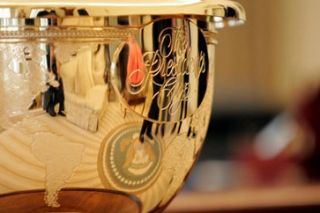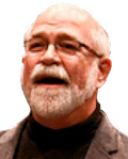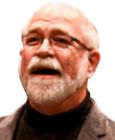President Donald Trump
Golf, Integrity, and Presidents Past
For some, there's no sport—winning is everything.
Updated April 3, 2024 Reviewed by Hara Estroff Marano
Key points
- When well-played. golf delivers therapeutic benefits including respite, recuperation, and release.
- Rule-breaking in sport spills over into life and indicates general low moral functioning.
- Is it surprising that Donald Trump not only cheats at golf but lies about his accomplishments?
By my count, sixteen of the last nineteen United States presidents played golf. The question here is, why should this be interesting to Psychology Today readers?
For several good reasons, including therapeutic benefits that attend the sport, respite, recuperation, and release. And for moral lessons in fairness, companionship, and trust that the game teaches.
I’ll get to those. Meantime, a brief excursion through presidential highlights.
Presidential Golf
In 1908, Theodore Roosevelt, an enthusiastic sportsman, warned his designated successor, William Howard Taft, against golf because of (as we would put it now) its addictive qualities. After receiving “hundreds of letters” complaining about Taft’s enthusiasm, TR wrote the future President, “golf is fatal.” Undeterred, Taft, who tipped the scales at 320 lbs., countered with the beneficial effects of the sport, which included “good health and good manners.”
Woodrow Wilson, who defeated Taft in 1912, played many hundreds of rounds of golf during his presidency, more than any other, and, as it happened, none of them very well. He would tee off early and be back behind the Resolute Desk by 9 a.m. Warren Harding, who followed Wilson, loved golf but loved whiskey even more. (Harding keeled over after two years as president, the shortest term in history.)
Franklin Delano Roosevelt, the eventual hero of the Great Depression and World War II, excelled at golf, winning championships in his early years. Felled by polio at age 39, his time on the links came to an end. Dwight D. Eisenhower carried an iron around the White House and had a putting green installed there as a distraction from Cold War cares. The “doomsday briefcase,” which held the launch codes for atomic weapons, accompanied his clubs on the links, however.
Richard Nixon played golf; his game improved after his resignation. Gerald Ford, a natural athlete, attracted the notice of comedians for hitting spectators with his drives.

The Bushes hailed from a family golf dynasty; Bush 1’s grandfather, a scratch golfer, helped found the United States Golf Association. His father and mother also excelled at golf. His son, the 42nd president, played the game almost as an aerobic sport. “Golf has meant a lot to me,” the gentlemanly first President Bush said when winning the Bobby Jones Award: “It means friendship, integrity, and character.”
Clinton, Obama, and Trump
The way three following presidents—Clinton, Obama, and Trump—played the game is particularly revealing both psychologically and ethically, especially illuminating regarding how friendship, integrity, and character are revealed in sportsmanship.
Veteran sportswriter Rick Riley played rounds with all three. In his insightful and witty Commander in Cheat, Riley notes that the gleefully wily and famously sly Bill Clinton became well-known for the “Billigan,” a pun on the term “mulligan.” In golf, a mulligan is a do-over for a clumsy or unlucky shot, a second chance not sanctioned by formal rules but sometimes allowed by consent of the foursome in a friendly, informal game.
Clinton took the mulligan a step further, according to fellow players and eyewitness sportswriters, taking as many as five practice drives off the tee. Then, explains Riley, he would get his Secret Service agents to cheat for him, having the agents certify the longest ball as his first—the one that counted. Those golfers who take the game and its conventions seriously (especially if there is cash at stake) consult the exhaustive USGA Rules for Golf, which runs to 268 pages. For Clinton though, the game of golf really was only a game, and therefore with the self-permissive Billigan, his flexible rulebook did not resonate with a moral vibe.
On the other hand, Barack Obama, who played a couple of times a week, was a stickler for rules in golf. "You could have put him on a USGA poster,” Riley observed. Beside the occasional short “gimme” putt, “no mulligans, no cheating, no do-overs.” With Obama, Reilly concluded, “everything is by the book.”
But when it comes to the intersection of sport and sportsmanship, Donald J. Trump, an excellent golfer, is, by far, the most intriguing and disturbing of all the presidential enthusiasts.
With Trump, need I recap, nothing goes by the book.
Trump Is a Super Dupe-er
According to eyewitness accounts by caddies, fellow players, and sportswriters cited in Riley’s book, the ex-President commits infractions routinely. They range from bad manners and bad morals. Here is a small sample:
- After foozling a drive, he races ahead in his turbocharged cart and kicks his ball out of a sand trap or to a better lie.
- He has kicked competitors’ balls into the rough or behind trees.
- He rarely “putts out.” Instead, he routinely picks up putts shorter than six feet.
- He fails to ask permission to play through.
- He drives his cart onto greens.
- He was suspended from the Winged Foot Golf Club for pushing another player.
- He cheats on his scorecard.
- He has never won a refereed championship at any course he did not own but claims at least 20 victories on his own courses.
- He has faked a Time magazine Man of the Year cover with his own picture inserted, framed it, and hung it at several of his clubs.
Following the Rules Is Not a Trivial Pursuit
When rule-breakers are innovators and paradigm shifters, the results have sometimes proved spectacular. Think Copernicus, Galileo, Darwin, Edison, Einstein, the Wright Brothers and Steve Jobs.
And it may be that gleefully duping devotees with the fragile and grandiose claim that he bested pro golf champion Phil Mickelson is trivial compared to serial marital infidelity, scamming hopeful students with fake university degrees, stiffing contractors, spreading conspiracy theories, summoning rioters, or subverting national elections.
But as sports moralists will note, cheats are cheats, and cheating at sports bleeds over into “lower moral functioning” in life.
In her 2020 biographical study Too Much and Never Enough, Trump’s niece Mary—a clinical psychologist and a lifelong close observer, to her chagrin—describes her uncle as deficient in the ethical qualities key to golf: friendship, integrity, and character. She offers two salient diagnoses; that he was “indifferent to the truth” and that “cheating and sowing division are all he knows.”
References
Don Van Natta, Jr., First Off the Tee: Presidential Hackers, Duffers, and Cheaters from Taft to Bush (2003); Catherine M. Lewis, Eisenhower’s Love of Golf Helped Shape 1950s America (2007); Dave Shedloski, “Golf Lineage Ran Deep for President George H.W. Bush,” USGA (December 1, 2018) https://www.usga.org/content/usga/home-page/articles/2018/12/george-hw-bush-dies-golf-big-part-of-legacy.html; Rick Reilly, Commander in Cheat: How Golf Explains Trump (2019).
Psychology Today Staff, “President Donald Trump,” Psychology Today, https://www.psychologytoday.com/intl/basics/president-donald-trump (retrieved 3/29/24); Nicole E. Ruedy, Celia Moore, Francesca Gino, and Maurice E. Schweitzer, “The Cheater’s High: The Unexpected Affective Benefits of Unethical Behavior,” Journal of Personality and Social Psychology, Vol. 105, No. 4, pp. 2013, 531–548; Peter Wade, “Trump, Notorious Golf Cheat, Claims he Beat Phil Mickelson’s Score at Bedminster Course,” Rolling Stone (August 27, 2023); Mary L. Trump, Too Much and Never Enough: How My Family Created the World’s Most Dangerous Man (2022); Bandy Lee, Robert Jay Liftton, The Dangerous Case of Donald Trump: 27 Psychiatrists and Mental Health Experts Assess a President (2019).




